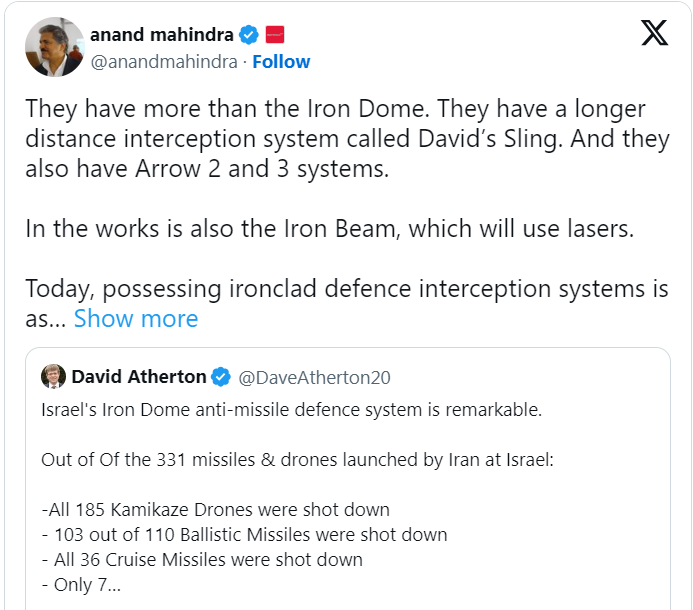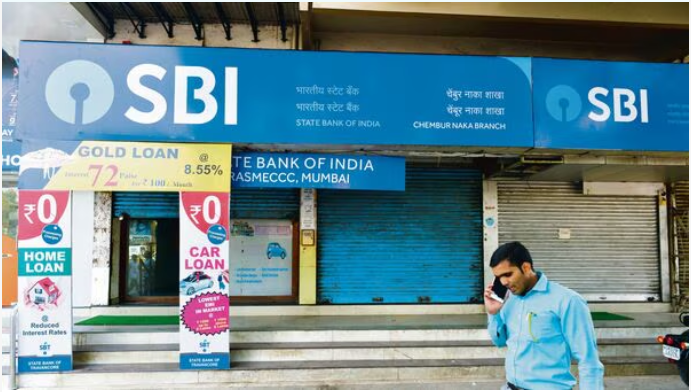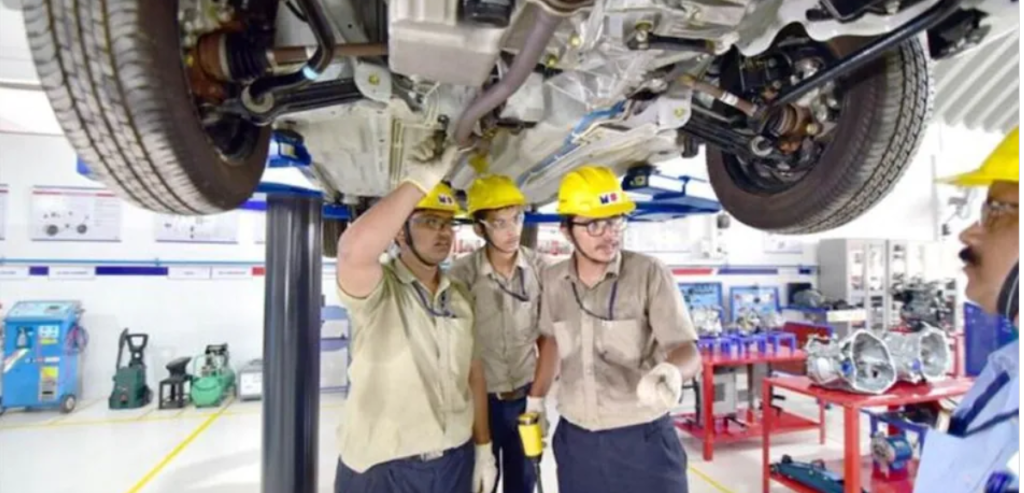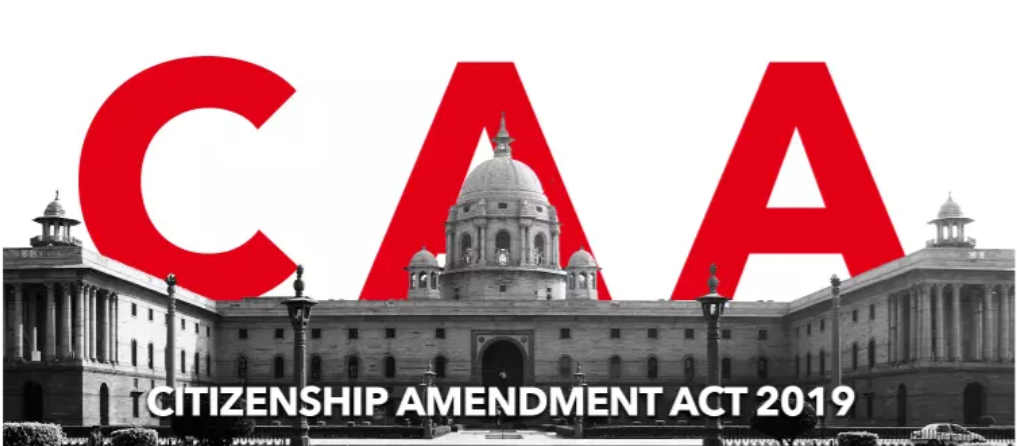“Anand Mahindra lauds Israel’s air defense capabilities, noting that they extend beyond the Iron Dome system.”
Israel used a multi-layered defence shield to block Iran’s mass drone and missile attack on Israeli territory on Saturday.

Mahindra Group Chairman Anand Mahindra, known for his influential presence on the internet, recently praised Israel’s swift response to Iran’s missile and drone attack and urged India to develop a similar air defence system. Israel used a multi-layered defence shield to block Iran’s mass drone and missile attack on Israeli territory on Saturday. Its defensive array includes short-range Iron Dome and long-range Arrow-2 and Arrow-3 missiles. Now, sharing his insights on Israel’s defence capabilities, Mr Mahindra on Sunday emphasised the importance of possessing a robust defence interception system in today’s geopolitical landscape.
Resharing a tweet which talked about the Iron Dome, Mr Mahindra wrote, “They have more than the Iron Dome. They have a longer distance interception system called David’s Sling. And they also have Arrow 2 and 3 systems. In the works is also the Iron Beam, which will use lasers”.
“Today, possessing ironclad defence interception systems is as important as a cache of offensive weaponry. We in India must step up our focus on & spending in that direction,” he added.

Since being shared, Mr Mahindra’s post has accumulated more than 2.5 million views. His post sparked a discussion among social media users.
“The most important thing that Israel has is the support of USA, France, UK & other countries who send in their airforce to help in intercepting and bring down these missiles & drones of Iran. These countries are also supplying weapons to Israel and are standing with it even when they ask for a ceasefire,” wrote one user.
“True, India should learn from all such happening around us. We should invest much more on defense R&D and prepare ourselves for future warfare. I believe current government is moving in right direction to make India immune from any external threats,” expressed another.
“Completely encouraging private players in research and defence sector will help massively in india @PMOIndia india should start developing iron dome similar models,” commented a third user.
“Totally agree sir, I think one of the most important thing we lack than these defence systems is the resolve like the Israeli people, when we differentiate between enemies with clear sight! We are at some level but is not 100% strong,” wrote an X user.
That’s quite the lineup! Impressive advancements in defense technology. Keeping up with the times and staying innovative. Great to see the progress!” commented another.
In the electoral bonds case, SBI has submitted comprehensive data, including unique numbers, to the ECI.
After the Supreme Court’s directive, the State Bank of India has submitted comprehensive details regarding electoral bonds, encompassing unique alphanumeric numbers, to the Election Commission. These bond numbers will unveil the connection between buyers and recipient parties.

Electoral Bonds case: The State Bank of India (SBI) has submitted complete details of electoral bonds, including the ‘unique alpha-numeric’ details of bonds, to the Election Commission of India (ECI). The unique bond numbers would reveal the link between the buyers and the recipient political parties.
On Thursday, the SBI told the apex court that it has revealed information such as the denomination and the specific number of electoral bonds. “No details other than complete account numbers and KYC withheld from disclosure in terms of SC order,” the lender informed the court.
This comes after the Supreme Court of India, in a third tongue-lashing to the SBI, said the bank should stop being “selective” and make “complete disclosure” of all details related to the electoral bonds scheme by March 21.
On Thursday, the SBI filed a compliance affidavit in the Supreme Court, saying it has furnished all details of electoral bonds to the ECI.
The SBI further informed that it has not furnished the KYC details of the political parties and purchasers as it could compromise the security of the party concerned.
The details furnished to the ECI by the bank on electoral bonds include the date of encashment, name of the political party, bond number, denominations, last four digits of account number, and payment branch code, the affidavit stated.
The details of electoral bonds purchasers submitted include URN number, journal date, date of purchase, date of expiry, name of purchaser, bond number, denominations, issue branch code, and status.
In a landmark verdict, a five-judge constitution bench had done away with the electoral bonds scheme, calling it “unconstitutional”, and ordered disclosure by the Election Commission of donors, the amount donated by them and the recipients by March 13.
On March 11, the SBI, which unsuccessfully sought an extension of time till June 30 to disclose electoral bond details, faced searching questions from the top court which wanted to know about the steps taken to comply with its directions.
Last Friday, the SC admonished the SBI for furnishing incomplete information and issued a notice to the bank to explain the reasons for the non-disclosure of unique alphanumeric numbers.
In the previously published lists by the ECI, with information from the SBI, ‘lottery king’ Santiago Martin’s Coimbatore-based Future Gaming and Hotel Services emerged as the top bond purchaser and Bharatiya Janata Party (BJP) was the largest recipient, followed by Trinamool Congress (TMC).
Gautam and Vijaypat Singhania reconcile after a public dispute, with Gautam expressing joy over having his father at home today.
Vijaypat, who transformed Raymond from a small fabric company into a world-renowned brand and then handed over the reins to Gautam in 2015, went public, saying he had made a ‘stupid’ mistake of giving everything to his son

Raymond boss Gautam Singhania and his father Vijaypat Singhania have reportedly made amends after an ugly public spat over his separation from Nawaz Modi. The younger Singhania on Wednesday posted on X welcoming his father home.
Vijaypat, who transformed Raymond from a small fabric company into a world-renowned brand and then handed over the reins to Gautam in 2015, went public, saying he had made a ‘stupid’ mistake of giving everything to his son and that parents should “think very carefully before they give away everything to their children”.

In an earlier interview with Business Today, the former Raymond boss said that he would not want to interfere in the decision made by Gautam and Nawaz Modi. He made it clear that he stands by his daughter-in-law and will support her and not his son.
On being asked if he would be open to speaking to his son if Nawaz approaches him, Vijaypat Singhania said, “My first answer would be yes, I’d be open to meeting him. My second answer is that meeting him has no meaning because he won’t listen to me.”
“And if I say something which he doesn’t like, he may scream at me, he may abuse me. He does all these kinds of things. So, I would probably try to keep away as much as I can,” he added.
Vijaypat, in the interaction, also said that his son Gautam took away everything from him, and that he survives on the little money he is left with.
“I have no business. He had agreed to give me some parts of the company. But of course, for him to back out is a two-second deal, he backed out. So I have nothing else, I gave him everything. By mistake I was left with some money on which I’m surviving today. Otherwise I would have been on the road. He’d be happy to see me on the road. I’m sure of that. If he can throw his wife out like this, throw his father out like this, I don’t know what he is,” he said.
Driven by robust manufacturing, business activity in India reaches an 8-month peak.
New orders in Asia’s third-largest economy surged to their highest expansion rate in over three years, indicating sustained strong demand for factory goods.

India’s business activity this fiscal expanded at the fastest rate in eight months in March, staying on course as the fastest growing major economy.
HSBC’s flash India Composite Purchasing Managers’ Index (PMI), compiled by S&P Global, rose to 61.3 this month from February’s final reading of 60.6.
That extended the streak of expanding activity to 32 months. The 50-mark separates expansion from contraction on a monthly basis.
“Led by the strongest manufacturing output in nearly three-and-a-half years, the composite output index rose quickly,” said Pranjul Bhandari, chief India economist at HSBC. “New orders rose at a faster pace than in the previous month, and within that both domestic and export orders showed improved vigor.”
Growth was led by the manufacturing sector, which has been one of the primary economic drivers over the past few quarters. The index tracking factory activity rose to 59.2, its highest since February 2008, from 56.9 last month.
Demand in Asia’s third-largest economy for factory goods remained strong with new orders recording the fastest expansion in over three years.
Meanwhile, services activity also remained robust although the index eased slightly to 60.3 in March from 60.6 last month
Novartis is currently exploring the possibility of transferring ownership of its listed business in India.
Regarding the strategic review of Novartis’s listed entity in India, Narasimhan clarified that it was not prompted by any pricing policies within the country

Novartis AG, a global pharmaceutical company, has announced a strategic review of its operations in India, including its listed business. Vasant Narasimhan, CEO of Novartis, in an interview with CNBC-TV18, outlined several key points regarding Novartis’s strategy in India.
Narasimhan said the company is contemplating exploring the potential of identifying a better owner for its listed business in India.
Vasant Narasimhan stated, “Looking at a strategic review of our listed business in India. Will see if we find a better owner for it.”
He said future investments will be primarily directed through NHPL (Novartis Healthcare Private Limited), which will focus on launching exciting new products.
Additionally, he highlighted ongoing investments in its unlisted entity will continue.
Regarding the strategic review of Novartis’s listed entity in India, Narasimhan clarified that it was not prompted by any pricing policies within the country. He said, “Our strategic review of India listed entity is not due to any pricing policy in the country.”
Currently, Novartis’s operations in India employ approximately 8,300 individuals, with plans to further expand the workforce by 10 percent, he said.
In conclusion, Narasimhan reaffirmed the company’s commitment to making steady investments in India, signalling a continued interest in the Indian pharmaceutical market.
“Supreme Court reprimands SBI for failure to disclose unique serial numbers on electoral bonds, serves notice.”

The Supreme Court of India on Friday pulled up the State Bank of India for not sharing the unique serial numbers provided on the now-banned electoral bonds, data of which was made public yesterday.
A five-judge Constitution bench of Chief Justice of India DY Chandrachud and Justices Sanjiv Khanna, BR Gavai, JB Pardiwala and Manoj Misra said that the SBI has not fully complied with its March 11 order in which it had ordered the bank to disclose all details concerning Electoral Bonds.
The apex court noted that the SBI did not disclose the unique alphanumeric numbers present on every electoral bond. It issued a notice to the SBI and sought a response by March 18. The SC said the judgment of its 5-judge Constitution bench clarified that all details of electoral bonds were to be made available including date of purchase, name of purchaser, and the denomination.
“The court raised the issue of the information submitted by the SBI to the ECI about the particulars of the bonds. They said that this information did not include the alphanumeric number of the bonds so therefore they have not given full information about the people who purchased the bond as well as the parties who redeemed the bonds,” said senior Advocate Prashant Bhushan.
During its February 14 judgment when the SC bench denounced the validity of the electoral bonds scheme due to its ‘unconstitutional’ nature, it ordered the SBI to furnish details related to the bonds and pass them on to the Election Commission of India (ECI) who, in turn, were to make it public. Originally, SBI was to provide the data, including the date of encashment and the denomination of the bonds to ECI by March 6.
However, it sought an extension till June 30, which SC rebuked. During the hearing, the bench took note of the submissions of senior advocate Harish Salve, appearing for the SBI, that more time was needed for collating the details and matching them as the information was kept in two different silos with its branches.
Salve claimed if the matching exercise was to be done away with, the SBI could complete the exercise within three weeks. “We had not told you to do the matching exercise. We have asked you for a plain disclosure,” the CJI said. SC subsequently, the public lender was asked to published data on March 12, with EC making it public on March 14.
ELECTORAL BONDS DATA
SBI informed SC that a total of 22,217 electoral bonds were purchased and 22,030 redeemed by political parties between April 1, 2019 and February 15 this year.
Subsequently, as per the SC’s request, EC made the data public. The biggest donor turned out to be a little-known lottery company called Future Gaming and Hotel Services.
Other donors featured on the list included steel tycoon Lakshmi Mittal, Sunil Bharti Mittal’s Bharti Airtel, Anil Agarwal’s Vedanta, ITC, Mahindra and Mahindra, DLF, PVR, Birlas, Bajajs, Jindals, Spicejet, IndiGo and the Goenkas
Future Gaming and Hotel Services bought the highest value of bonds, worth Rs 1,368 crore, with Megha Engineering and Infrastructure Ltd coming next with Rs 966 crore in purchases.
Among the known corporates, Agarwal’s Vedanta Ltd bought Rs 398 crore worth of bonds, while Sunil Mittal’s three companies together purchased a total of Rs 246 crore worth of bonds.
According to the data uploaded by the poll panel, the buyers of electoral bonds included Spicejet, IndiGo, Grasim Industries, Megha Engineering, Piramal Enterprises, Torrent Power, Bharti Airtel, DLF Commercial Developers, Vedanta Ltd., Apollo Tyres, Edelweiss, PVR, Keventer, Sula Wines, Welspun, Sun Pharma, Vardhman Textiles, Jindal Group, Phillips Carbon Black Limited, CEAT tyres, Dr Reddy’s Laboratories, ITC, Kaypee Enterprises, Cipla, and Ultratech Cement.
The parties that redeemed electoral bonds include the BJP, Congress, AIADMK, BRS, Shiv Sena, TDP, YSR Congress, DMK, JD-S, NCP, Trinamool Congress, JDU, RJD, AAP, the Samajwadi Party, Jammu and Kashmir National Conference, BJD, Goa Forward Party, Maharashtrawadi Gomantak Party, Sikkim Krantikari Morcha, JMM, Sikkim Democratic Front, and the Jana Sena Party.
What is Citizenship (Amendment) Act (CAA)? All you need to know
Synopsis
Ahead of the General Elections 2024, the Centre has notified the rules for implementing the Citizenship (Amendment) Act (CAA) 2019. The act grants Indian nationality to persecuted non-Muslim migrants from Pakistan, Bangladesh, and Afghanistan who arrived in India up until December 31, 2014. The leading opposition parties argue that the CAA is discriminatory as it targets Muslims.

As anticipated, ahead of the General Elections 2024, the Centre notified the rules for implementation of the contentious Citizenship (Amendment) Act (CAA) 2019 on Monday. This has further paved the way for granting citizenship to undocumented non-Muslim migrants from Pakistan, Bangladesh and Afghanistan.
he Modi-led government will now begin granting Indian nationality to persecuted non-Muslim migrants from the above said countries who arrived in India up until December 31, 2014, following the issuance of the CAA regulations. These consist of Christians, Parsis, Buddhists, Jains, Sikhs, and Hindus.
What is CAA?
The Citizenship Amendment Act (CAA) aims to protect individuals who have sought refuge in India due to religious persecution. It offers them a shield against illegal migration proceedings. To be eligible for citizenship, applicants must have entered India on or before December 31, 2014. Currently, Indian citizenship is granted to those born in India or who have lived in the country for at least 11 years. The proposed amendment also includes a provision for the cancellation of Overseas Citizen of India (OCI) registration if the OCI cardholder violates any provision of the Citizenship Act or any other applicable law.
Who does CAA leave out?
The argument since 2019 with the leading opposition parties has been that the law is discriminatory as it targets Muslims, who make up around 15% of the country’s population. The government explains that since Pakistan, Afghanistan, and Bangladesh are Islamic republics with a Muslim majority, Muslims cannot be considered persecuted minorities. However, they assure that applications from other communities will be reviewed on a case-by-case basis.
How can migrants apply for citizenship?
Since the entire process will be conducted online, the Ministry of Home Affairs has prepared a portal for the applicants’ convenience. The year that the applicants entered India without proper documentation must be disclosed.
The applicants won’t be asked for any documents.
Why has the Opposition been up in arms against it?
The controversial Citizenship Amendment Act (CAA) passed in December 2019, has faced opposition and protests across the country. Many opposition parties have criticized the law, calling it “discriminatory”.
The Congress party has raised concerns about the timing of the rule notification, alleging that it is intended to polarize the upcoming Lok Sabha elections in West Bengal and Assam.
Congress general secretary Jairam Ramesh has accused the government of trying to divert attention after the Supreme Court’s recent comments on the electoral bonds issue. He stated,
“After seeking nine extensions for the notification of the rules, the timing right before the elections is evidently designed to polarise the elections, especially in West Bengal and Assam.”
In Kerala, Chief Minister Vijayan has declared that the CAA will not be implemented in the state, describing it ..
The timing of notifying rules
As mentioned before, the CAA was passed nearly four years ago. As per guidelines stated in the manual of parliamentary procedures, the rules for any legislation should have been framed within six months of presidential assent or seek extension from the Committees on Subordinate Legislation in both the houses of the Parliament.
Since 2020, the home ministry has been taking extension in regular interval from the parliamentary committees for framing the rules.
However, it was only in December 2023 that the Union Home Minister Amit Shah stressed up that no one can stop the implementation of the CAA as it is the law of the land and also said it was the BJP’s commitment to implement the CAA.
The timing of the notification is also to be viewed as the Lok Sabha polls are likely to be announced in a couple of days and the Model Code of Conduct may be implemented thereafter.
How many people may seek citizenship under the new rules?
While no estimated figure has been provided, according to the annual report of the Ministry of Home Affairs for 2021-22, from April 1, 2021 to December 31, 2021, a total of 1,414 foreigners belonging to these non-Muslim minority communities from Pakistan, Bangladesh and Afghanistan were given Indian citizenship by registration or naturalization under the Citizenship Act, 1955.
The Citizenship Act of 1955 grants non-Muslim minorities from Pakistan, Bangladesh, and Afghanistan Indian citizenship through registration or naturalisation in nine states: Gujarat, Rajasthan, Chhattisgarh, Haryana, Punjab, Madhya Pradesh, Uttar Pradesh, Delhi, and Maharashtra.
‘I Absolutely Love IPL’: Virat Kohli Explains How T20 League Has Universal Connect for Players And Fans

Batting superstar Virat Kohli feels that the Indian Premier League has helped in establishing a better connection between the players and the fans. Kohli is currently out of action having opted out from the ongoing five-match Test series between India and England.
However, Kohli, who represents Royal Challengers Bangalore, is expected to make his competitive return in the IPL 2024 that will get underway from March 22.
“I absolutely love IPL, also because of the camaraderie you share, so many new players you play with, so many players that you’ve known for a long time who are not from your own country, whom you don’t see often,” the former RCB captain was quoted as saying by Star Sports.
“There’s a reason why everyone loves IPL so much, as there’s a connect, both for players and fans,” he added.
Kohli has forged close friendships with his IPL teammates including South Africa legend AB de Villiers with whom he played together for RCB.
“You do play all your tournaments which is one team versus another. ICC tournaments come every now and then, but even in ICC tournaments, you don’t interact with other players or see the other team, so often,” Kohli said.
“But in IPL, you’re probably meeting every team just every second or third day, and that’s the beauty of IPL. You are playing in different conditions in a different city with a different team. Everybody has a different kind of determination at various stages of the tournament and such magical moments are being created,” he added.
Kohli has been part of IPL since it was launched back in 2008 and has remained with RCB throughout. He’s holds the record for the most runs scored in an IPL season and is also the league’s all-time highest run-getter too.
India vs England Highlights 5th Test Day 2: IND Maintain Dominance in Dharamsala

India vs England Live Score 5th Test Day 2, IND vs ENG: Stay tuned for ball-by-ball commentary and real-time updates on the India vs England 5th Test Day 2. Catch the live scorecard, match highlights, and statistics as the India national cricket team takes on the England cricket team
Another day dominated by India. If the spinners ruled the roost on the opening day, it was the turn of batters to assert themselves today. Shubman Gill and Rohit Sharma peeled off sparkling centuries while Dhruv Jurel and Sarfaraz Khan struck half-centuries. India suffered a mini collapse after the tea break before Kuldeep Yadav and Jasprit Bumrah led a late recovery to extend the lead to 255 runs when the final ball of the day was bowled.
India (Playing XI) – Yashasvi Jaiswal, Rohit Sharma (C), Shubman Gill, Devdutt Padikkal (In for Rajat Patidar), Ravindra Jadeja, Sarfaraz Khan, Dhruv Jurel (WK), Ravichandran Ashwin, Kuldeep Yadav, Mohammed Siraj, Jasprit Bumrah (In for Akash Deep).
England (Playing XI) – Zak Crawley, Ben Duckett, Ollie Pope, Joe Root, Jonny Bairstow, Ben Stokes (C), Ben Foakes (WK), Tom Hartley, Mark Wood (In place of Ollie Robinson), James Anderson, Shoaib Bashir.
PITCH REPORT – Sanjay Manjrekar is pitchside. He says that it is going to be a nice clear day and the outfield looks fantastic as well. Nick Knight joins him and says that the pitch looks like a belter and the ground is smallish as well and one would love to bat first. Reckons the carry will be good and there might be some movement for the seamers early on.
Where To Watch India National Cricket Team VS England Cricket Team 5th Test Match?
IND vs ENG will be streamed live on the JioCinema app and website in India.
‘India worse than Pakistan,’ Rahul Gandhi accuses PM Modi of ‘finishing’ small businesses
Rahul Gandhi has accused PM Modi of causing maximum unemployment in India in 40 years by finishing small businesses through demonetisation and GST.

Rahul Gandhi believes Prime Minister Narendra Modi has “finished” small businesses in India. He, during a speech in Madhya Pradesh, was speaking about India’s unemployment woes. He mentioned that India’s unemployment had surpassed Pakistan, Bangladesh and Bhutan.
According to Gandhi, PM Modi’s policies are responsible for it. His policies have adversely affected small enterprises, he said. The Congress leader specifically pointed to demonetisation and the Goods and Services Tax (GST) as critical blows.
“Today, there has been maximum unemployment in the country in the last 40 years. India has double the unemployment as compared to Pakistan. We have more unemployed youth than Bangladesh and Bhutan because Narendra Modi has finished small businesses by demonetization and implementing GST,” ANI quoted Gandhi as saying in Gwalior.
India’s youth unemployment rate stood at a staggering 23.22%. Pakistan’s unemployment rate stood at 11.3% and Bangladesh’s 12.9%, as per a World Bank report from 2022.